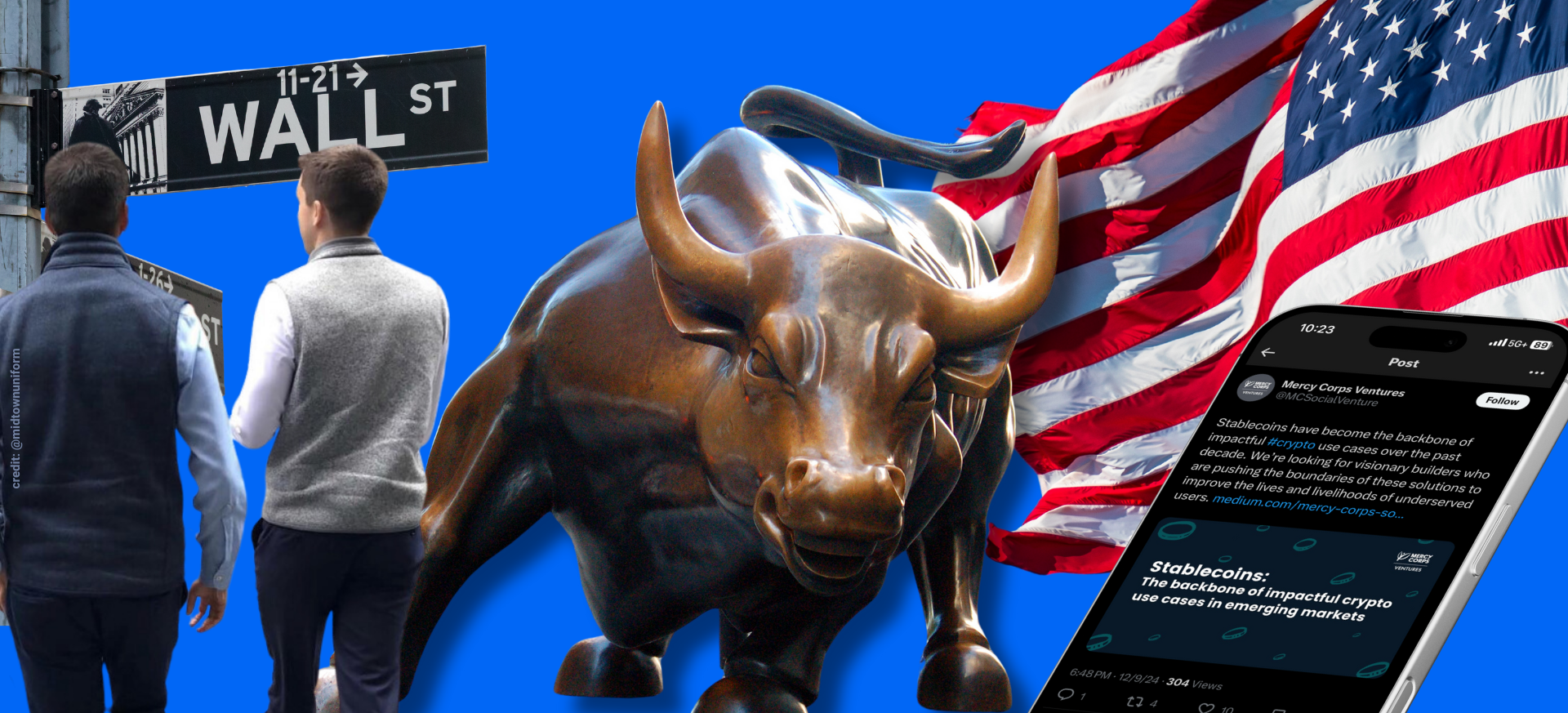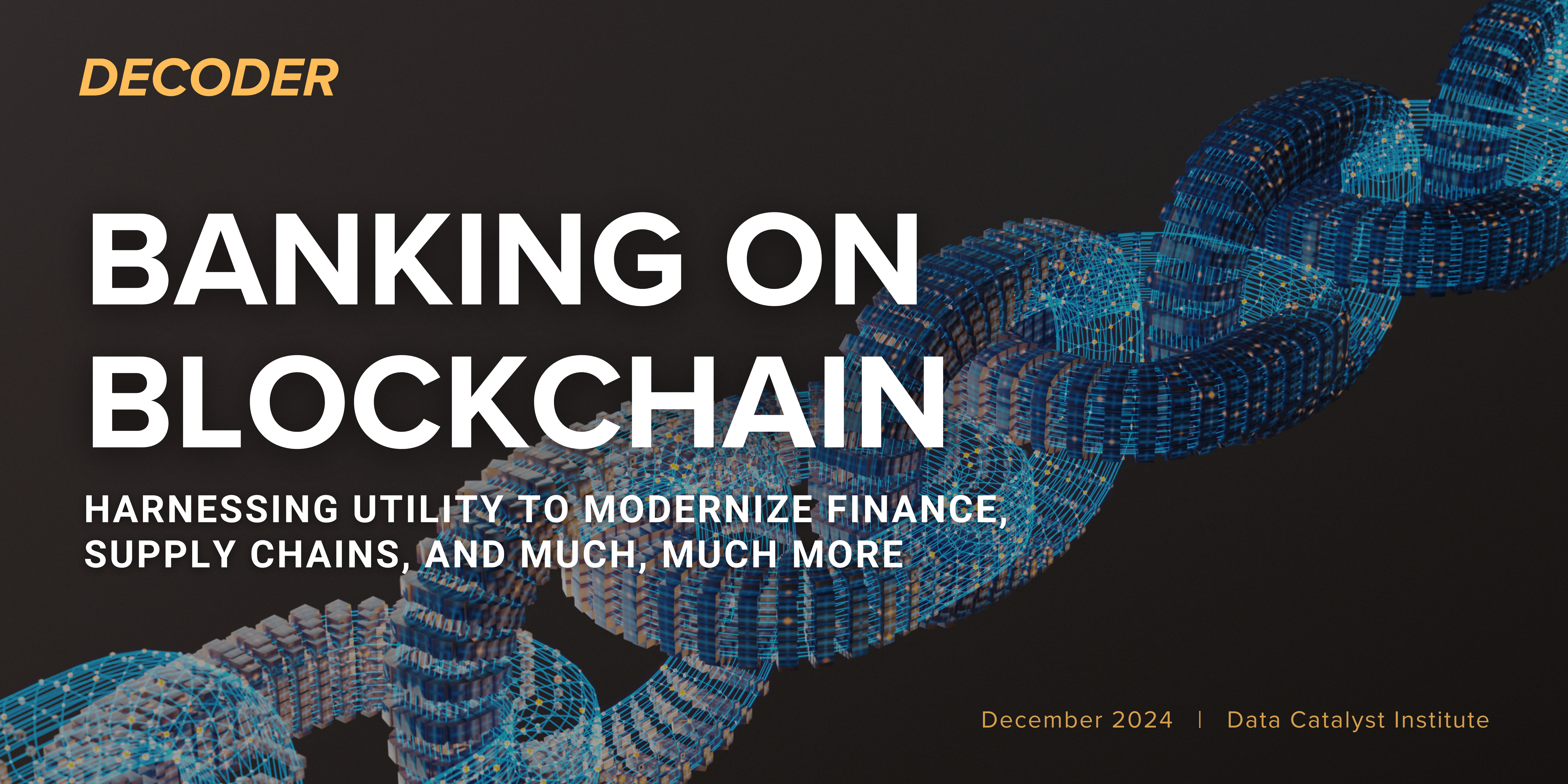
Banking on Blockchain: Harnessing Utility to Modernize Finance, Supply Chains, and Much, Much More
December 2024
As the digital economy evolves, blockchain technology and digital assets (i.e., “crypto”) have become important discussion topics in finance and politics. A survey conducted by HarrisX in September 2024 revealed that 69% of voters believe the U.S. should be the global leader in digital asset and cryptocurrency innovation, and 49% say it’s important for political candidates to support “pro-crypto” policies. This growing public demand for a forward-looking approach to digital assets makes it crucial that lawmakers understand and engage with these technologies.
You may have heard of “the blockchain” without knowing what it is. Blockchains are secure digital ledgers that record and verify transactions across a network of computers, as opposed to on a centralized server. They are secure because stored data is encrypted, hence the moniker “crypto.” It’s a shared, unchangeable list that everyone on the network can see and trust, making it nearly impossible to alter or hack. Blockchains and digital tools built on their foundations are powering a new age of faster, cheaper, and more transparent financial services.
This matters because banking in America is a complex and uneven landscape. “Tier 1” U.S. banks with large customer bases, high capital requirements, diverse offerings, and extensive cross-border relationships use their global networks to send money directly to foreign banks, relying on a system of “correspondent banking.” In contrast, roughly 4,500 smaller U.S. banks and credit unions lack international ties and typically rely on these larger banks to facilitate overseas transfers. As a result, cross-border transactions for millions of U.S.-based individual and business customers of these smaller banks often involve multiple intermediaries, leading to longer processing times, higher fees, and less transparency.
Blockchain technology and the digital financial infrastructure built on it offer solutions to bridge these gaps because they bypass traditional correspondent banking and directly connect sender and receiver. This innovative approach allows for near-instant, low-cost transfers with greater transparency, as all transactions are recorded on a public ledger. For individuals and small businesses, this means faster access to funds, reduced fees, and a clearer view of each step in the transaction process.
Blockchain-based financial solutions can significantly reduce traditional banking services’ costs, delays, and complexities that disproportionately affect people in rural or remote areas, cost-conscious small businesses, and the underbanked. Blockchain technology offers a way to bypass these barriers, providing faster, cheaper, and more accessible alternatives to those often underserved by the traditional financial system.
Beyond its impact on finance, blockchain technology can potentially transform many other industries and use cases by enhancing transparency, security, efficiency, and cost-effectiveness. For example, many companies already use blockchain-based services to track supply chains of everything from food to pharmaceuticals to high-value items like paintings and diamonds, ensuring authenticity and reducing fraud.
Beyond supply chains, private companies and federal agencies, including the FDA, USDA, DOD, USAID, and NASA, are adopting blockchain to manage records, improve data security, streamline processes, reduce costs, boost efficiency, and more.
Humanitarian organizations have begun employing blockchain to distribute domestic and foreign aid more effectively, providing fast, secure, traceable transactions that ensure assistance reaches those in need, whether an emergency is within the United States or far away. According to Precedence Research, as the implementation of these innovations expands in popularity worldwide, the global market size of blockchain technology is poised to explode from about $27 billion to roughly $1.9 trillion by 2034.
Maintaining and expanding America’s global leadership in banking and financial services, not to mention the technology sector, is vital for its long-term economic and national security. However, several other nations, including Dubai, Singapore, and Brazil, have more regulatory clarity than the U.S. For the U.S. to maintain its dominant position in global financial markets and infrastructure, it must lead in blockchain and digital asset innovation, ensuring that America not only stays agile regarding these technological shifts but also sets the standards for the modernization of the global economy that is already underway.

Banking on Blockchain: Harnessing Utility to Modernize Finance, Supply Chains, and Much, Much More
Data Catalyst Institute
December 2024